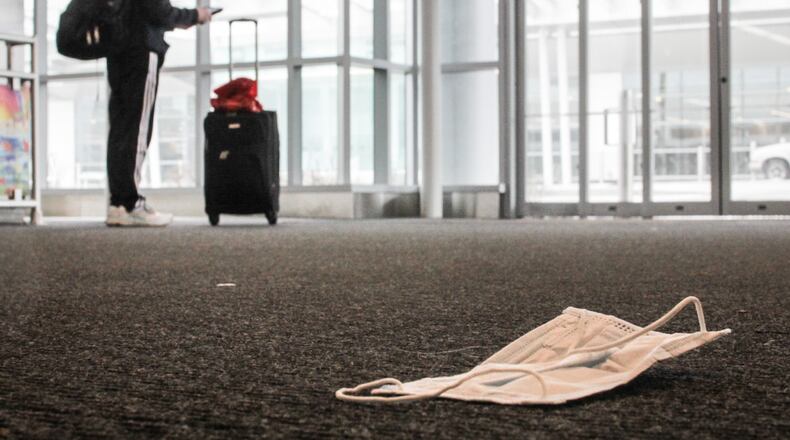“Americans are fed up with political measures linked to public health and deserve representation that will take action to bring these unconstitutional mask mandates to an end,” said Davidson in a statement. “The CDC lacks the legal authority to make law, it hasn’t used rule-making consistent with the Administrative Procedures Act, and shouldn’t be able to use coercion to compel airlines or (the Transportation Security Administration) to enforce its mandates.”
Davidson represents Ohio’s 8th congressional district, which is made up of Butler, Clark, Darke, Miami, and Preble counties, and a part of Mercer County.
This comes after the TSA announced last week that it will extend the mask mandate another month through April 18 based on a recommendation from the CDC. The mandate, which applies to transit such as planes, trains, buses and transportation hubs like airports and bus stops, had been set to expire this Friday. Over the next month, the CDC will work on revising its policy for masks on public transportation, the TSA said.
The CDC’s media relations department did not return a request for comment.
According to the new masking guidance the CDC implemented in late February, the majority of the U.S. currently has low or medium COVID-19 spread, meaning most people don’t need to wear masks indoors there. That includes all Ohio counties.
The lawsuit argues that under the non-delegation doctrine (an interpretation of the U.S. Constitution), Congress cannot delegate its legislative powers to other entities.
U.S. Rep. Thomas Massie, R-Kentucky, the lead plaintiff on the lawsuit, said the mandate is not legitimate because Congress never passed a law requiring masks.
“This lawsuit targets the faceless bureaucrats who are behind the CDC’s unscientific regulation so that this illegal mask mandate can be brought to a permanent end,” he said.
Whether this mandate is constitutional is a complex issue, said University of Dayton School of Law professor Christopher Roederer.
“The court has not struck down any delegation of authority under the non-delegation doctrine since 1935,” Roederer said. “However, certain members of the court have signaled that they would like to revisit the (issue) … Whether this will be the case in which this happens is difficult to tell.”
About the Author


